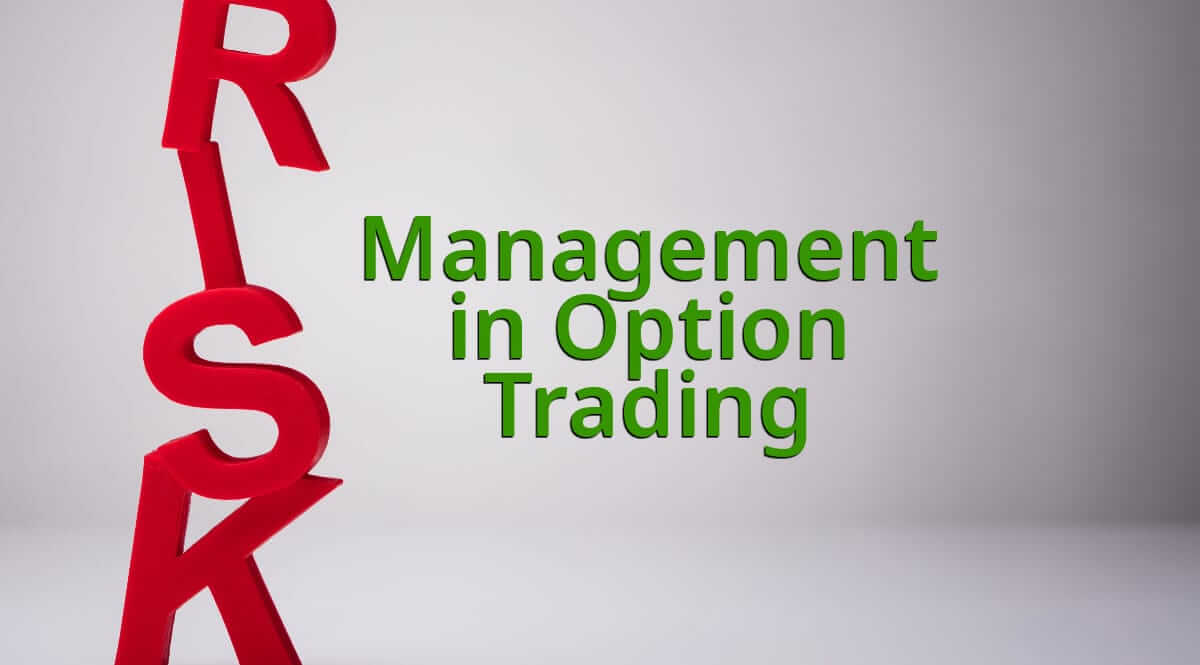
What is Risk Management in Options Trading – Get All Info
Have you recently thought about what is risk management in options trading? Why is it so crucial to understand all the aspects of risk as a professional trader? And, ultimately, why is it important to understand each term deeply?
Trading can be thrilling and profitable with focus, research, and emotional control. Nonetheless, even the best traders must manage risk to keep losses in check. Strategies like stop orders, profit-taking, and protective puts are essential for successful trading.
If you want to learn more about risk management and terms such as options risk management strategies and position sizing in options trading, you are in the right place! Let’s start from the beginning, explaining what risk management is in options trading, shall we?
What is Risk Management exactly?
Risk management is vital in stock and options trading. Centralized risk management should identify concerns and risks and assess their likelihood and impact. It also explores handling options and prioritizes and authorizes appropriate plans.
Continuous monitoring and adjustment of these efforts are crucial. This approach aims to proactively manage potential issues, with internal goals to surpass customer expectations. In risk management, innovative techniques are essential for identifying and addressing potential risks and ensuring professional results, especially in options trading.
What are the key considerations in this case?

Key considerations include proactive management and exploring hedging options positions. Understanding the “Greeks” in options risk management and maintaining appropriate position sizing is crucial to mitigate losses and ensure resource efficiency.
This approach helps avoid unprofessional and subpar outcomes in projects and trading strategies.
Risk management in Options trading – explained.
Risk management is about using specific strategies to limit potential losses in options trading. These strategies are the following ones:
- Hedging
- Rolling options positions
- Position sizing.
Position Sizing
This entails deciding what part of your trading account to risk on a single options position. Investors assess their asset distribution, risk-return ratio, and market conditions to identify the right option position size.
Typically, traders only risk a small percentage of their account equity on one position to limit potential losses.
Hedging and Rolling Options Positions
These are other strategies used to manage risk in options trading, helping traders minimize their exposure to price fluctuations and market uncertainties and ensuring they are not overly exposed to potential losses.
Understanding what risk management in option trading

Risk management is vital for options traders. Understanding your risk tolerance is, without a doubt, the first step in creating a tailored option strategy for managing risk in your trading account.
Employ position sizing to allocate assets effectively, considering long-term goals and the specific equity of your account.
Hedging, another key strategy, involves buying or selling options contracts to offset potential losses in-stock positions, guarding against price movement and implied volatility.
An example of it
For example, buying put options on a stock you are holding can protect against unpredictable drops in market price, ensuring long-term security for your investments despite the fluctuations in stock prices. Stay alert to option expiring timelines, and be ready to adapt your strategies to the market’s pulse.
Efficiently managing risk and monitoring price moves while keeping an eye on the bottom line is crucial for options traders aiming for consistent and protected growth in the trading world.
Get to know Risk Management Options.
Risk handling choices can be broken down into several types:
- Avoidance: Choose a different path that doesn’t have the risk. It’s only sometimes possible, especially for programs that aim for high rewards despite high risks.
- Control: Create and follow a plan to lessen the risk. This strategy involves thoughtful planning by skilled individuals and might include simultaneous development projects.
- Assumption: Accept the risk and move forward, being cautious not to confuse assumed risks as being under control.
- Risk Transfer: Pass the risk to another party, often using contracts or hedging, a common method among contractors.
- Knowledge and Research: This isn’t a risk-handling method but supports other strategies through deep study and focused testing.
Remember, initial risk plans might be challenging. Ongoing improvement based on experience and actual outcomes is vital. Businesses must be adept at managing risks to meet their and their customers’ goals today.
Terms in Risk Management and Options Trading

Here are the specific terms and explanations you need to know if you wonder, “What is risk management in options trading?”:
Understanding the Risks
In options trading, many wrongly believe buying options is risk-free. However, notable risks persist, depleting your trading capital and causing a loss in time value, even with stable prices. The greater risks lie in selling options.
Risks in Selling Options
Selling options globally carries significant risk if market prices move unfavourably. For example, selling a Rs.200 call at Rs.5, rising to Rs.300, leads to a considerable Rs.95 loss. This situation is similar for stocks or indices like Nifty and Bank Nifty.
Handling Price Movements
Unexpected price shifts pose serious threats. Substantive risks emerge when selling a call option with a price surge or selling put options with price drops. Stop losses can offer some protection, but overnight risk when selling options remains.
Managing Volatility
Even stable prices can be risky. A sudden volatility increase can be harmful when selling options. Assume a sold 250 call stock at Rs.10 falls to Rs.8. A volatility surge causes the same options to jump to Rs.14, leading to a Rs.4 loss.
Margin Risks

Selling options include higher initial margin risks. Along with this, the necessary daily MTM margin upkeep adds to the risk.
MTM or Mark-to-Market Margins
Selling options requires refilling MTM margins against adverse price movements, posing liquidity management risks if margins fall below the maintenance margin.
Assignment Risks
Earlier in India, daily assignment risks existed for option sellers with American options. Now, having shifted to European options, this risk is eliminated.
Options Trading Strategies
Various strategies exist, from protective measures like protective puts to cost-reducing ones like covered calls. These can be tailored for different market behaviours.
What are the benefits of Options Trading?
Despite the risks, options trading allows effective risk hedging and defined maximum loss. Understanding risk management in options trading is crucial for making informed decisions and applying robust strategies.
- Enhanced Cost-Efficiency: Options can offer better cost-efficiency, allowing investors to optimize their investments.
- Reduced Risk: Options can sometimes pose lower risks than equities, providing a more secure investment environment when handled correctly.
- Higher Percentage Returns: The capacity for options to yield higher percentage returns is another notable benefit, enhancing the overall profitability of investments.
- Diverse Strategic Alternatives: Options furnish investors with various strategic alternatives for different market situations, amplifying the scope and flexibility of investments.
Is Options Trading Worth It?

While options trading can present less risk than stock trading when managed properly, it’s not riskless. If the prospect of potential losses is unsettling and a balanced risk approach is more appealing, options might not be the ideal investment avenue.
Those committed to long-term investment must weigh these factors thoroughly before trading options.
Essential Risk Management Strategies for Active Traders
- Selecting a Reliable Broker: Opt for a reliable broker to ensure secure transactions.
- Make Thoughtful Decisions: Allocate time for in-depth research and consideration before trading.
- Establish Limits: Apply stop-loss and take-profit points to manage potential losses.
- Spread Investments: Diversify to distribute the amount of capital across various assets, minimizing risk.
- Hedge Investments: Employ strategies to balance out potential losses.
Understanding the 1% Trading Rule
This rule advises traders to risk only up to 1% of their account’s total value on a single trade. In an account with a capital of $10,000, the potential loss should be, at most, $100 per transaction.
Steps to Become a Prosperous Active Trader

- Expand Knowledge: Gain insight into financial markets and analytical tools for assessing price changes.
- Ensure Adequate Capital: Have sufficient capital and time for effective trading.
- Control Emotions: Maintain emotional stability to make rational decisions.
- Consistent Strategy: Stick to a consistent strategy, diversifying investments for sustained success.
Important Note: Approach active trading with caution. It’s essential to start small and practice with a simulated account to understand the dynamics, ensuring a well-managed amount of capital and minimized risks.
Bottom line
Risk management is essential in options trading, ensuring effective identification and handling of potential risks. Utilize strategies like precise position sizing and hedging to manage risk, aligning with your risk tolerance and long-term goals.
Constant vigilance to market shifts and option expiry timelines is crucial. Ensuring proactive risk management and adaptability is fundamental for enduring, secure growth in options trading.
FAQ

What is risk management in options trading?
It’s a strategy to identify, assess, and prioritize risks to minimize potential losses in options trading.
Why is risk management crucial in options trading?
It helps keep losses in check, ensuring consistent and protected growth in the trading world.
What are some risk management strategies in options trading?
Strategies include hedging, rolling options positions, and precise position sizing.
What is position sizing?
It’s deciding the part of your trading account to risk on a single options position, considering various factors.
What are the benefits of options trading with proper risk management?
Benefits include effective risk hedging, defined maximum loss, cost-efficiency, and potential for higher returns.




